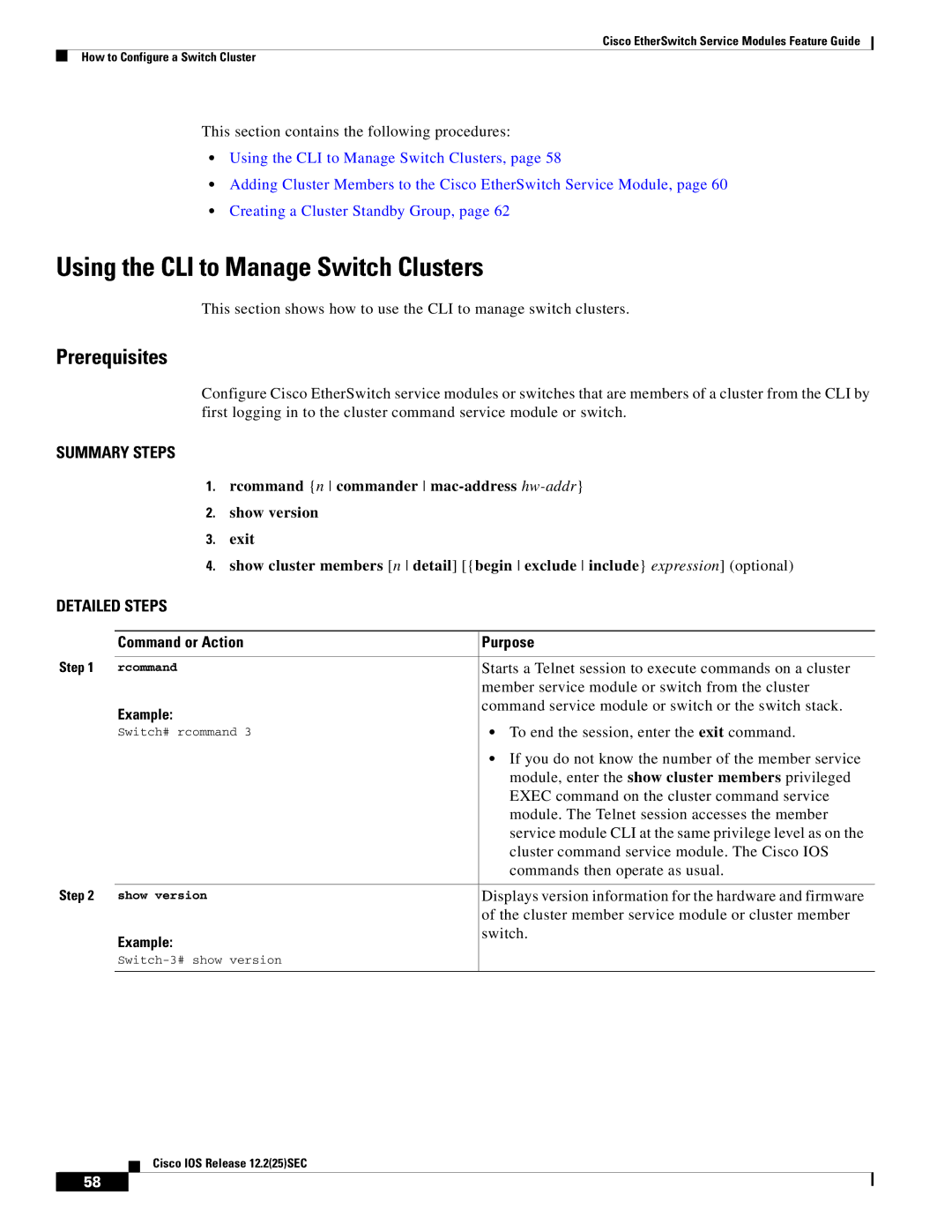
Cisco EtherSwitch Service Modules Feature Guide
How to Configure a Switch Cluster
This section contains the following procedures:
•Using the CLI to Manage Switch Clusters, page 58
•Adding Cluster Members to the Cisco EtherSwitch Service Module, page 60
•Creating a Cluster Standby Group, page 62
Using the CLI to Manage Switch Clusters
This section shows how to use the CLI to manage switch clusters.
Prerequisites
Configure Cisco EtherSwitch service modules or switches that are members of a cluster from the CLI by first logging in to the cluster command service module or switch.
SUMMARY STEPS
1.rcommand {n commander
2.show version
3.exit
4.show cluster members [n detail] [{begin exclude include} expression] (optional)
DETAILED STEPS
| Command or Action | Purpose |
Step 1 |
|
|
rcommand | Starts a Telnet session to execute commands on a cluster | |
|
| member service module or switch from the cluster |
| Example: | command service module or switch or the switch stack. |
| • To end the session, enter the exit command. | |
| Switch# rcommand 3 | |
|
| • If you do not know the number of the member service |
|
| module, enter the show cluster members privileged |
|
| EXEC command on the cluster command service |
|
| module. The Telnet session accesses the member |
|
| service module CLI at the same privilege level as on the |
|
| cluster command service module. The Cisco IOS |
|
| commands then operate as usual. |
Step 2 |
|
|
show version | Displays version information for the hardware and firmware | |
|
| of the cluster member service module or cluster member |
| Example: | switch. |
|
| |
|
| |
|
|
|
Cisco IOS Release 12.2(25)SEC
58
